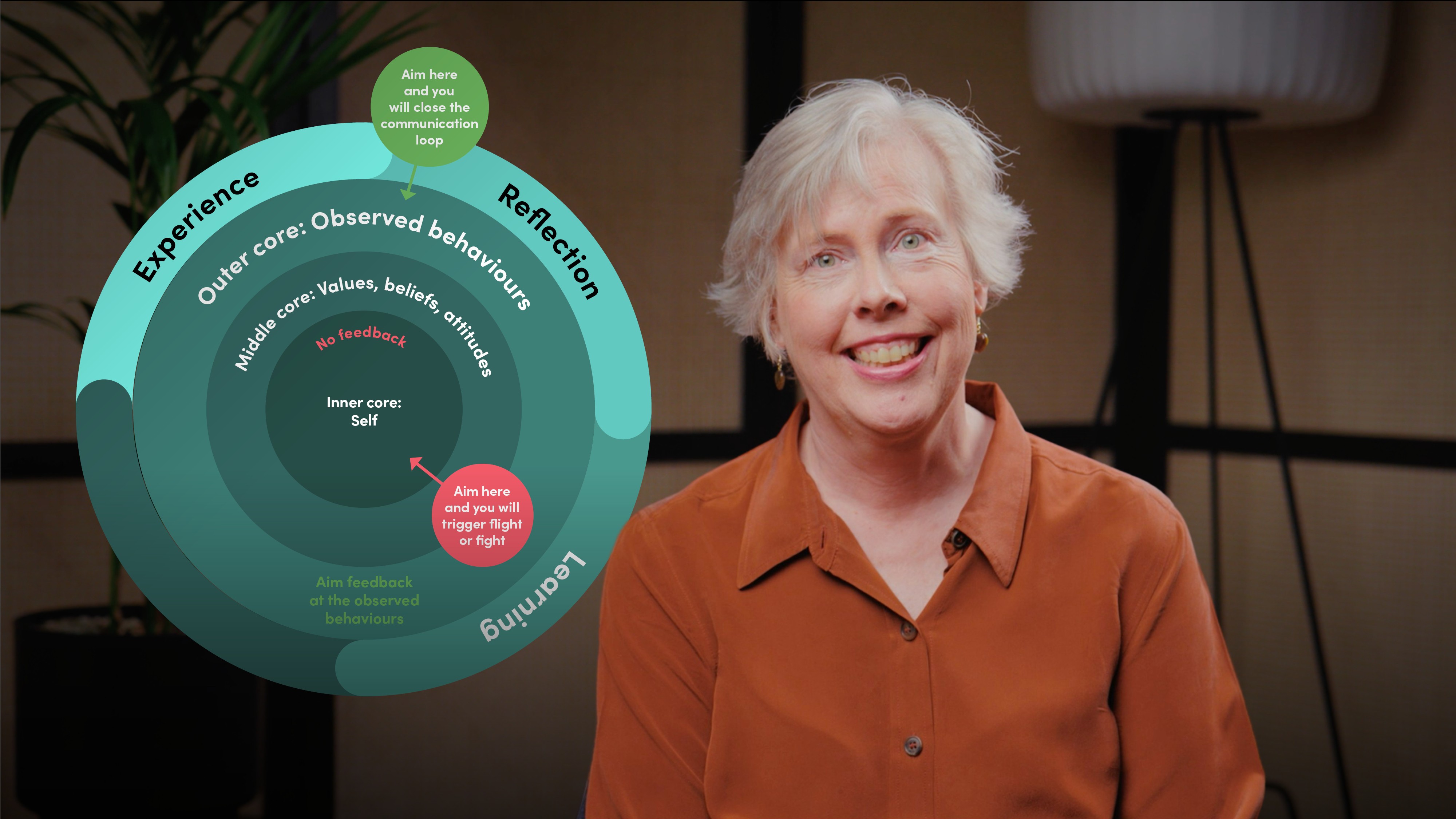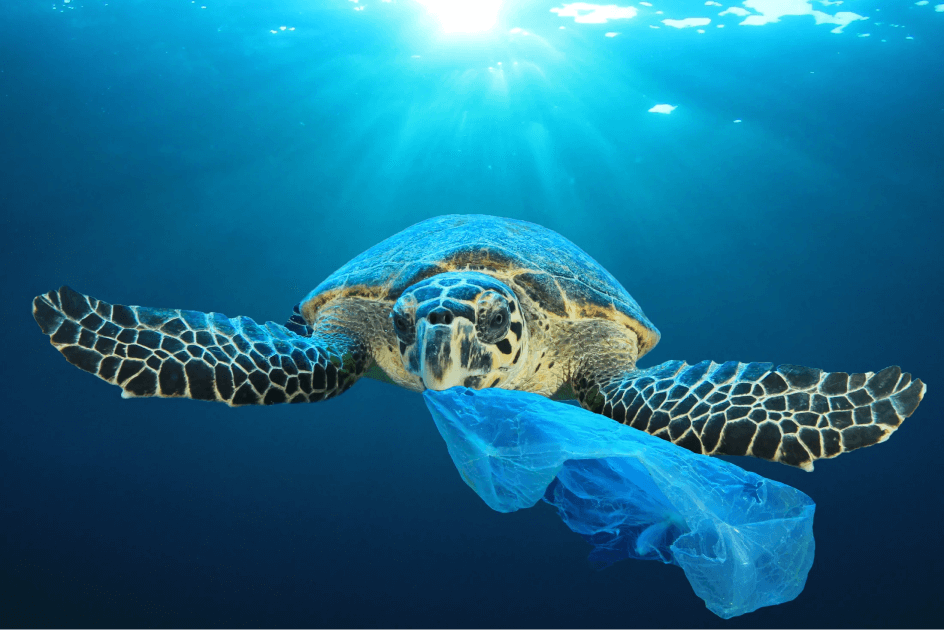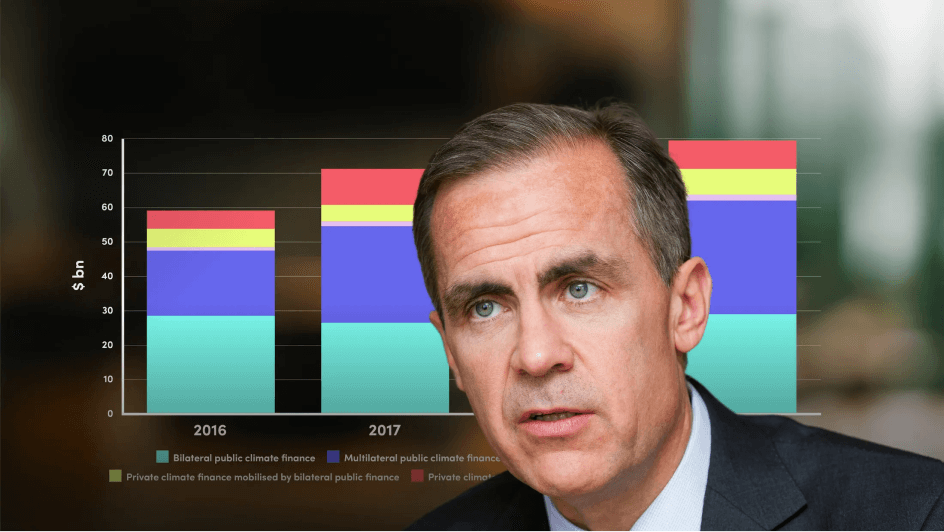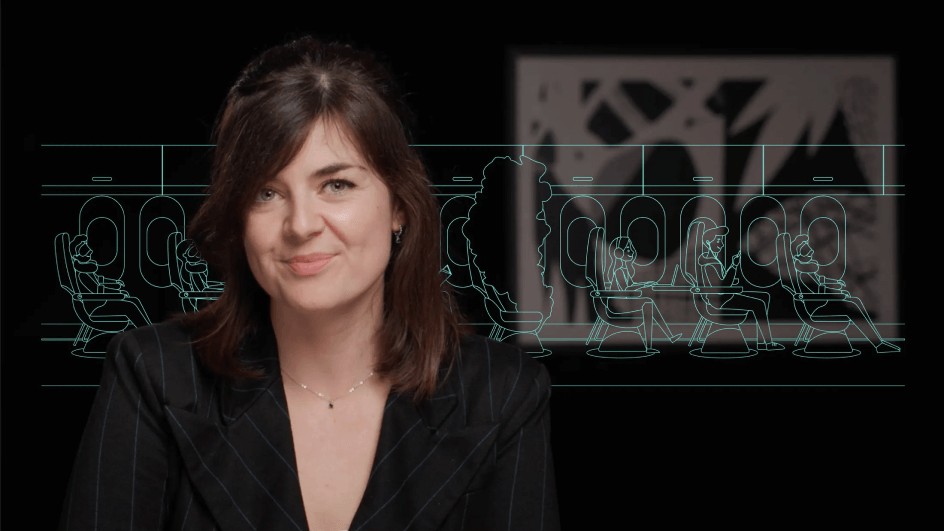
The Giving Good Feedback Model

Margaret Cheng
35 years: Writer & HR Consultant
We know what bad feedback is. So how do you give good feedback? Join Margaret Cheng as she outlines the good feedback framework.
We know what bad feedback is. So how do you give good feedback? Join Margaret Cheng as she outlines the good feedback framework.

The Giving Good Feedback Model
14 mins 39 secs
Key learning objectives:
Understand the giving good feedback framework
Identify what makes feedback helpful
Outline the PACES model
Overview:
The giving good feedback framework says that all feedback should be aimed at the outer core of a person's observable behaviours and not aimed at the inner core, which is their sense of self (e.g. their values, beliefs or attitudes). The PACES model helps you follow the good feedback framework, as it forces you to ask yourself questions about the activity and behaviour using 5 key words: perception, activity, consequences, explain and success.
- Perception: What do you think is happening? What do you think the person is supposed to be doing at this point?
- Activity: What can you see them actually doing or not doing?
- Consequences: What is the impact of what they are doing or not doing?
- Explain: Explain in detail what the impact of their behaviour is on you, the team or the work. What is happening as a result of what they are actually doing or not doing? What is going right and what is going wrong?
- Success: How do you think they need to change their behaviour to achieve the desired impact on the work?

Margaret Cheng
There are no available Videos from "Margaret Cheng"





















